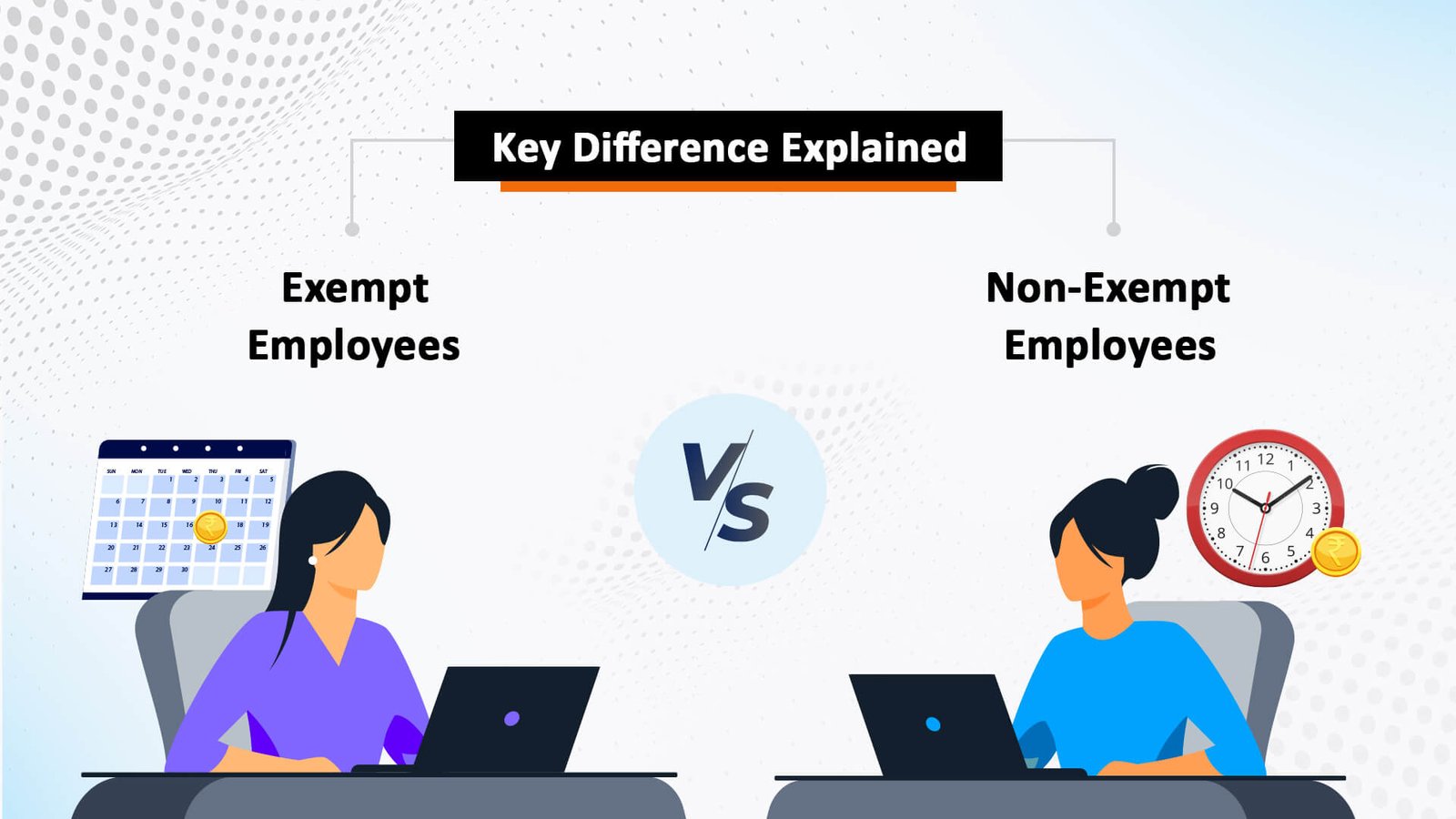The State of Wisconsin labor laws are made to protect employees from bad treatment and unsafe working conditions. The federal Fair Labour Standards Act (FLSA) provides the terms and conditions regarding minimum wages, overtime compensation, and many other aspects. In addition to any federal requirements, employers will also be responsible for complying with the Wisconsin labor laws requirements.
To ensure that both employers and employees are following Wisconsin work laws, it is important that they are aware of the differences when it comes to their rights and responsibilities at work. Let’s understand that in this blog.
Standard Working Hours And Overtime
Every state in the USA has different laws regarding working hours and overtime. Let’s dive into specific regulations around hours and wages.
Minimum Wages
Wisconsin has set its minimum wage at $7.25 per hour, which is the same as the federal minimum wage. In Wisconsin, unlike some other states, municipalities cannot create their own minimum wage ordinances. Thus, employees in Wisconsin will earn the same base pay rate across the whole state, regardless of which city or county they work in.
Employers can pay workers under the age of 20 an opportunity wage of $5.90 per hour for the first 90 days of employment. At the conclusion of the 90 days, or if the worker turns 20 during the 90 days, the employer must pay the minimum wage at that point.
Overtime Wage
Overtime pay is an important component of employee wages under Wisconsin labor laws for hourly employees. Wisconsin labor laws define 12-hour shifts as the rule—most employees are to be paid at 1.5 times their normal hourly rate for every hour worked over 40 hours in a workweek, whether it is an average of 40 hours or whatever works for the employer. As a result, employers are required to fairly pay employees for working additional hours.
There are some special exceptions for minors. These Wisconsin overtime laws are defined as per the Fair Labor Standards Act (FLSA) overtime exemptions.
Tipped Minimum Wages
In Wisconsin, the tipped minimum wage is $2.33 per hour. That is the wage for hiring a tipped employee as long as their wage and tips equal at least the minimum wage of $7.25 an hour.
Meals And Rest Breaks
Breaks for meals and other rest periods are generally required under Wisconsin labor laws only for employees under 18 years of age, who are required to receive a 30-minute break.
Wisconsin labor law does not require adult employees to receive rest periods, coffee breaks, or meal breaks, though the Wisconsin Department of Workforce Development encourages employers to provide at least one break of at least 30 minutes.
Employers will have to count all break periods (less than 30 minutes) as working time, including when employees are required to remain on the employer’s premises.
Rest Periods
Employers in Wisconsin are not required by law to provide rest breaks while employees are working; however, Wisconsin’s “One Day of Rest in Seven” law mandates that employees of manufacturing and retail establishments receive at least 1 day of rest.
Child Labor Laws In Wisconsin
It has specific Wisconsin labor laws for minors for when and how long minors can work. These restrictions vary depending on the employee’s age and whether school is in session.
Employers must take the work permit for minors under 16; also, guardians can apply online for the same.
| Age Group | Work Hours (During School Year: After Labor Day – May 31) | Work Hours (Summer: June 1 – Labor Day) |
| 14–15 years old |
|
Same as during the school year, except can work until 9:00 p.m. |
| 16–17 years old | There are no hour limits under state law, but federal law will not allow anyone under the age of 18 to work in hazardous jobs. | Same as during the school year. |
Leave Laws In Wisconsin
Sometimes employees require longer periods away from work for personal or family reasons, and Wisconsin State Labor Laws help to protect their jobs during these times. As per the Wisconsin Work Comp Laws, the Family and Medical Leave Act (FMLA) allows eligible employees to take an unpaid leave of absence as long as an employer meets the proper criteria.
Eligible employees may take up to 12 weeks of unpaid leave for certain situations:
- The birth of a child, adoption,
- Foster placement of a child,
- To care for a seriously ill family member,
- To care for an employee’s own serious health condition.
To qualify for FMLA, the employee must have worked for the employer for 12 months, worked at least 1,250 hours in the previous 12 months, and work for an employer that has at least 50 or more employees within 75 miles of the employee’s work site.
Taxes In Wisconsin
The individual income tax in Wisconsin is based on income, with rates from 3.50% to 7.65%. The corporate income tax rate is 7.9%, which is around the middle or higher of rates in the country.
Get the best solution to create a paystub – No errors, No hassles! – Free Paystub Generator
Say goodbye to the chaos surrounding staying compliant with labor laws! With the correct information, you can not only avoid penalties but also ensure that your employees are being treated fairly and consistently.
If you find paystub generation to be just another headache piled on top of compliance headaches, you do not have to feel that way any longer. You can use something as simple as a free paystub generator (like StubCreator) and let us take care of calculating the wages, deductions, and taxes.
Curious Minds Also Ask
How many hours can you work without a break in Wisconsin?
In Wisconsin, employees may normally work up to 6 hours straight without a break. Employers are not required by law to give you break time for meals or rest, and if they do, any break less than 30 minutes must be paid.
Is overtime over 8 hours a day or 40 hours a week in Wisconsin?
Overtime in Wisconsin is considered 40 hours per week, not 8 hours per day. Any hours over 40 in a week must be paid at a rate of 1.5 times the regular pay rate.
Do employers need a reason to fire you in Wisconsin?
In Wisconsin, we follow at-will employment, meaning an employee can be fired without cause or reason, unless it is discriminatory or retaliatory.
Is 32 hours considered full-time in Wisconsin?
Full-time in Wisconsin is generally considered to be 32 hours or more a week, but employers may define full-time differently in regard to benefits eligibility.
Can I sue for wrongful termination in Wisconsin?
Yes, you can sue for wrongful termination if it was for an illegal reason like discrimination, retaliation, or a breach of an employment contract.
Is Wisconsin a right-to-work state?
Yes, Wisconsin is a right-to-work state, meaning you cannot be required to join a union or pay union dues as a condition of employment.
What is an unfair labor practice in Wisconsin?
Unfair labor practices can include things like interfering with employees’ rights to organize, discrimination for joining a union, or not bargaining in good faith.
How long does an employer have to pay you after termination in Wisconsin?
Following termination, employers are required to pay any earned wages no later than the next scheduled payday or within 31 days, whichever is sooner.
What is the Wisconsin Employment Peace Act?
Collective bargaining, union rights, and labor relations for private sector employees are regulated by the Wisconsin Employment Peace Act to ensure fair labor practices.
How do I file a complaint against an employer in Wisconsin?
When filing a complaint against your employer, you can reach out to either the Wisconsin Department of Workforce Development (DWD), Equal Rights Division, or the U.S. Department of Labor, depending on your issue.
What do you do in Wisconsin if your employer doesn’t pay you?
If your former employer does not pay you, you can file a wage claim with the Wisconsin DWD, or you can sue in small claims court or circuit court.
What is the Wisconsin Fair Employment Act?
The Wisconsin Fair Employment Act (WFEA) prohibits employment discrimination based on protected classes, including sex, race, age, disability, religion, and others.
What qualifies as wrongful termination in Wisconsin?
Wrongful termination in Wisconsin includes being terminated for discrimination, whistleblowing (retaliation), or in violation of a contract or public policy.
Can you sue your employer in Wisconsin?
Yes, you can sue your employer in Wisconsin for wrongful termination, unpaid wages, wage claims, employment discrimination, harassment, and violations of employment laws.
FAQ's
What is the minimum wage in Wisconsin in 2025?
+
As of 2025, Wisconsin’s minimum wage remains at $7.25 per hour, matching the federal minimum. However, certain local ordinances and federal contractors may have higher wage requirements.
Does Wisconsin require paid sick leave for employees?
+
Wisconsin does not have a statewide paid sick leave law in 2025. Employers may choose to provide paid or unpaid leave as part of their benefits, but some federal provisions, such as the Family and Medical Leave Act (FMLA), may still apply.
Are employers in Wisconsin required to provide meal or rest breaks?
+
Wisconsin law requires meal breaks for minors under 18 but does not mandate meal or rest breaks for adult employees. However, if breaks shorter than 30 minutes are provided, they must generally be paid.
What are the overtime pay rules in Wisconsin in 2025?
+
In Wisconsin, overtime pay is required for non-exempt employees who work more than 40 hours in a workweek. Overtime must be paid at a rate of 1.5 times the employee’s regular hourly rate, consistent with federal Fair Labor Standards Act (FLSA) rules.





